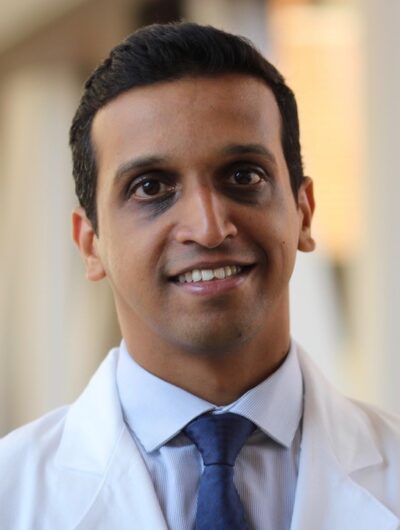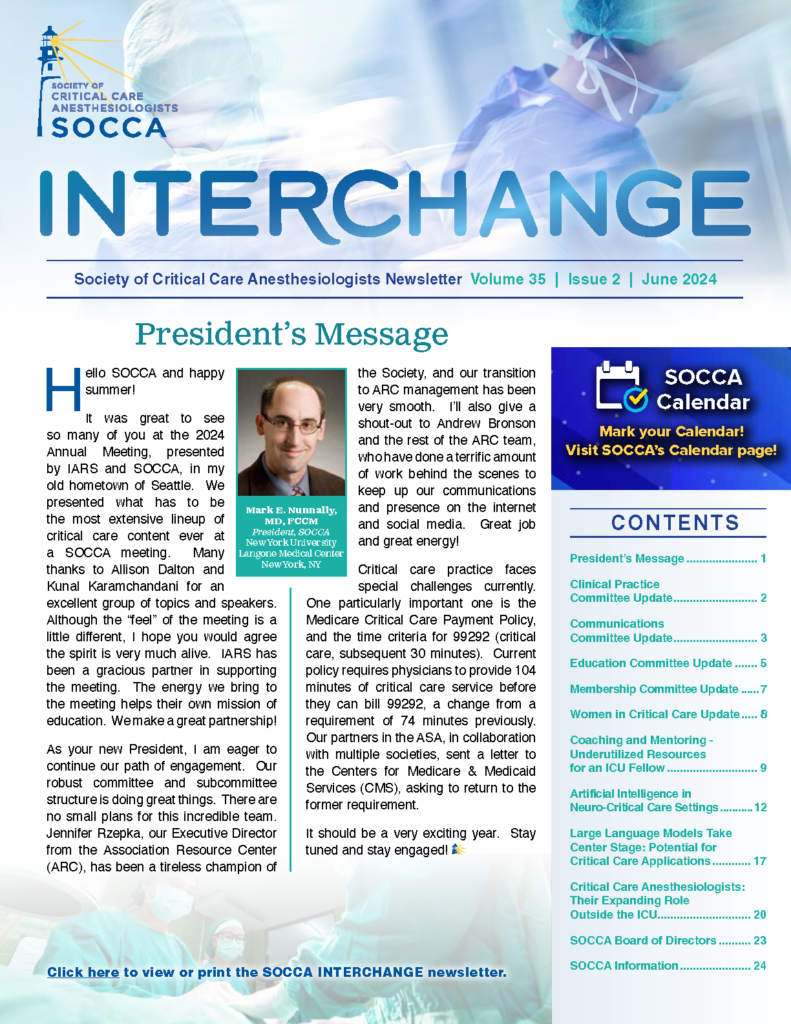Physician Wellness During a Pandemic
COVID-19 has caused immense stress on physicians. Anesthesiologists and critical care physicians have been at the forefront of pandemic response, whether caring for critically ill patients or facilitating surgical procedures amidst significant uncertainty. Health care providers are particularly vulnerable to mental health issues amidst risk of exposure, longer work hours, shortages of personal protective equipment (PPE), challenging resource allocation decisions, stress of caring for their loved ones, threatened financial and job security, and an overall decrease in social interactions.
When the pandemic hit the United States in March 2020, many institutions in metropolitan areas channeled their resources to manage these patients and canceled elective surgical procedures in response to either internal pressures or external mandates. These decisions materially impacted both patients in need of surgical procedures and hospitals who often depend on revenue from such procedures.
Physicians working in the U.S. with family abroad were, and largely still are, impacted by travel restrictions such that traveling abroad to support their families through challenging times was not possible. Some departments have been impacted by early retirements, and others have lost faculty members due to COVID-19. These and other challenges have only served to heighten the already-present risk of burnout. Professionally, many academic physicians have felt the deleterious impacts of restricted conference travel, fewer opportunities for in-person networking, constriction (or disappearance) of financial resources, shifting priorities for non-COVID-19 research, and increased family demands outside of work.
These uncertainties have also affected our anesthesiology residents and critical care medicine fellows. Some trainees have been affected by loss of job contracts, which had already been signed. The American Board of Anesthesiology (ABA) had to postpone board examinations, which are now being rescheduled to be held via an online platform. There is anxiety on their part surrounding how this is going to be executed, and more broadly they are particularly stressed about how these changes could impact potential career opportunities and their further career development.
Training program (and physician recruitment) interviews are also changing with growing adoption of videoconferencing and online interviewing platforms. This creates new challenges for program directors with limited time to adapt and make changes to the existing structure. At the time of writing, we are seeing a resurgence of infections around the world, and many countries are imposing fresh lockdown measures and other restrictions, which could create further challenges in the next few months, or even years.
We are most clearly dealing with a “new normal.” In order to stay engaged and deal with stress, setting up personal, intellectual, and health goals are important. Personal goals could include eating and drinking on time while on service, getting adequate sleep, adopting a hobby, or finding quality time to spend with loved ones. Achieving intellectual or professional goals is particularly challenging in the current environment, especially for critical care physicians in a busy work environment. Departmental wellness committees can therefore help to serve the faculty by pivoting to address these needs in addition to other facets of well-being. These entities, in response to identified stressors, should help find innovative ways to promote fairness and help individuals meet their myriad goals. The reward will be a resilient organization with high job satisfaction among its employees. Wellness committees can also plan recreational and team-building activities that can be done safely in the current environment.
Online conferencing and networking tools have been a great way to interact both for well-being, professional development activities, and routine internal meetings. A significant portion of our departmental meetings and lectures at the University of Alabama at Birmingham (UAB) are now conducted through Zoom, which has been favored by the faculty owing to convenience, especially amidst a busy schedule. Our departmental information technology (IT) program helped transition many of these activities seamlessly to teleconferencing without burdening busy clinicians with logistics. Zoom is also now used by many to connect with family members, conduct virtual dinners, hold family meetings, and stand in for other social events. Our residency interviews are conducted over these online platforms as well, and we are using Twitter to showcase training program achievements and life in the city. We have successfully conducted online book clubs and virtual interactive breakout sessions via Zoom. Again, IT resources were critical to success here. Online tools, like concept board and live board, can be used for brainstorming sessions and sharing ideas.
While our physical mobility has been limited during this time, opportunities remain to pursue online degree programs, training courses, and professional development programming. It has also become increasingly easy to connect with our international colleagues by organizing webinars, particularly by creating YouTube channels that can be accessed globally. SOCCA has likewise taken steps to become a broader platform for knowledge sharing. Our webinars, growing presence on Twitter, and the SOCCA DocMatter community have all helped to bring together members and share ideas from experts in our field.
Maintaining health and well-being has become a challenge with social distancing measures. While some outdoor sports and recreational activities can be enjoyed outdoors with social distancing measures, indoor activities and gyms are facing issues with maintaining appropriate safety precautions. With a little effort, it is not very difficult to create your own workout space at home. I created one during the pandemic when my gym membership was cancelled and have thoroughly enjoyed the convenience.
As we adapt to this “new normal,” we should find new ways to work together and continue to push for the continued advancement of ourselves and our medical discipline. There is no doubt that we are under immense pressure, but we have come out of stressful times in the past more resilient and equipped with new skills and tools. Creating a supportive work culture has never been so important to alleviate burnout, such that we can continue to be the best possible co-workers and effective mentors to our trainees who are seeking to achieve their full potential amidst stressful times.




































